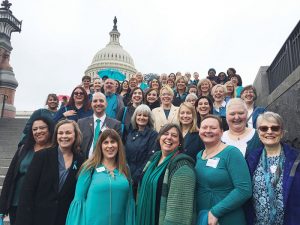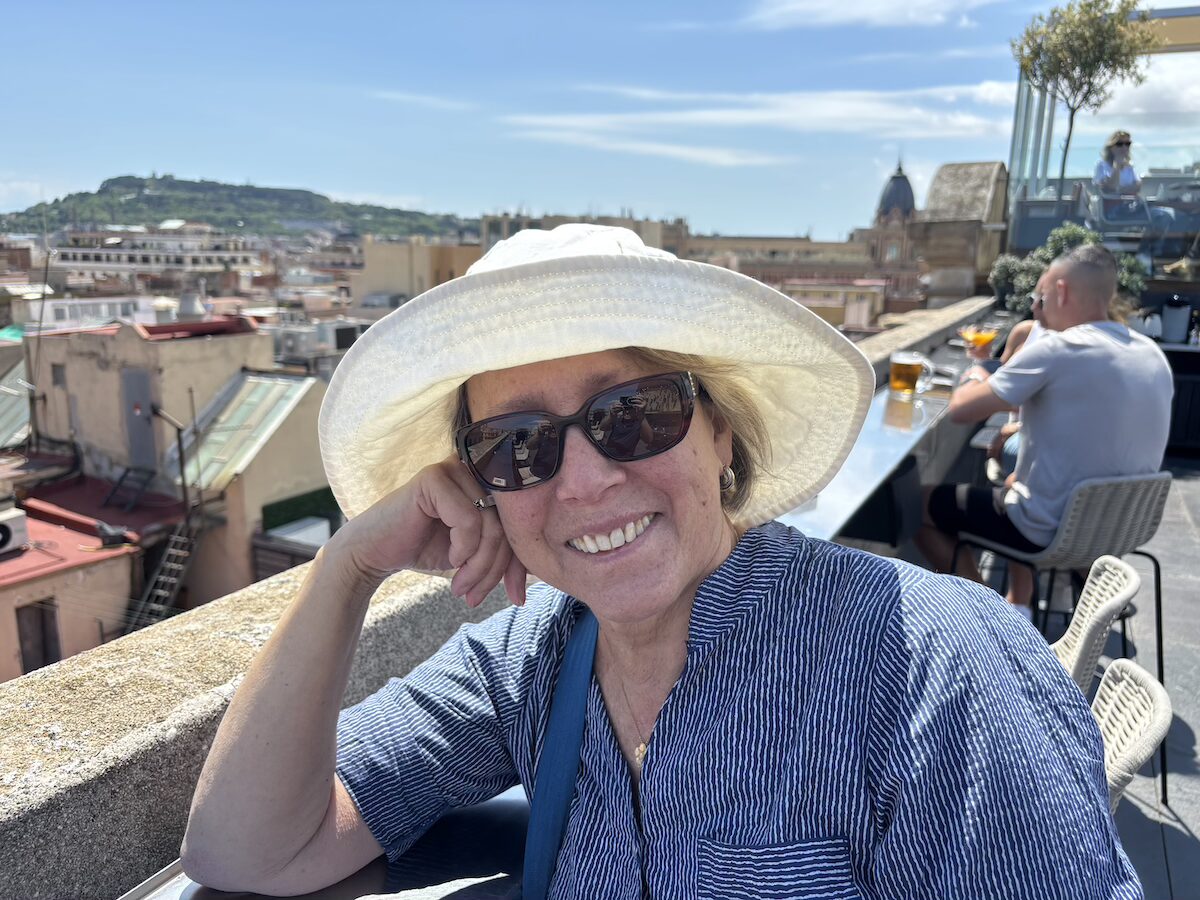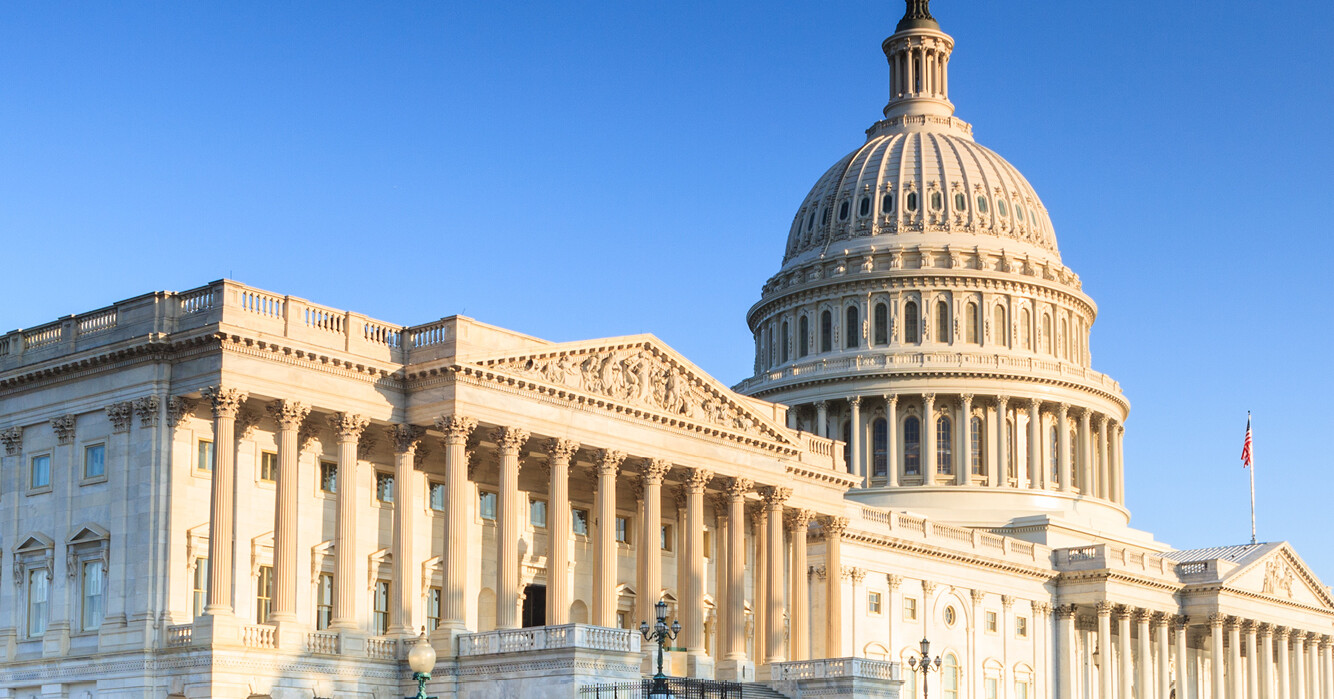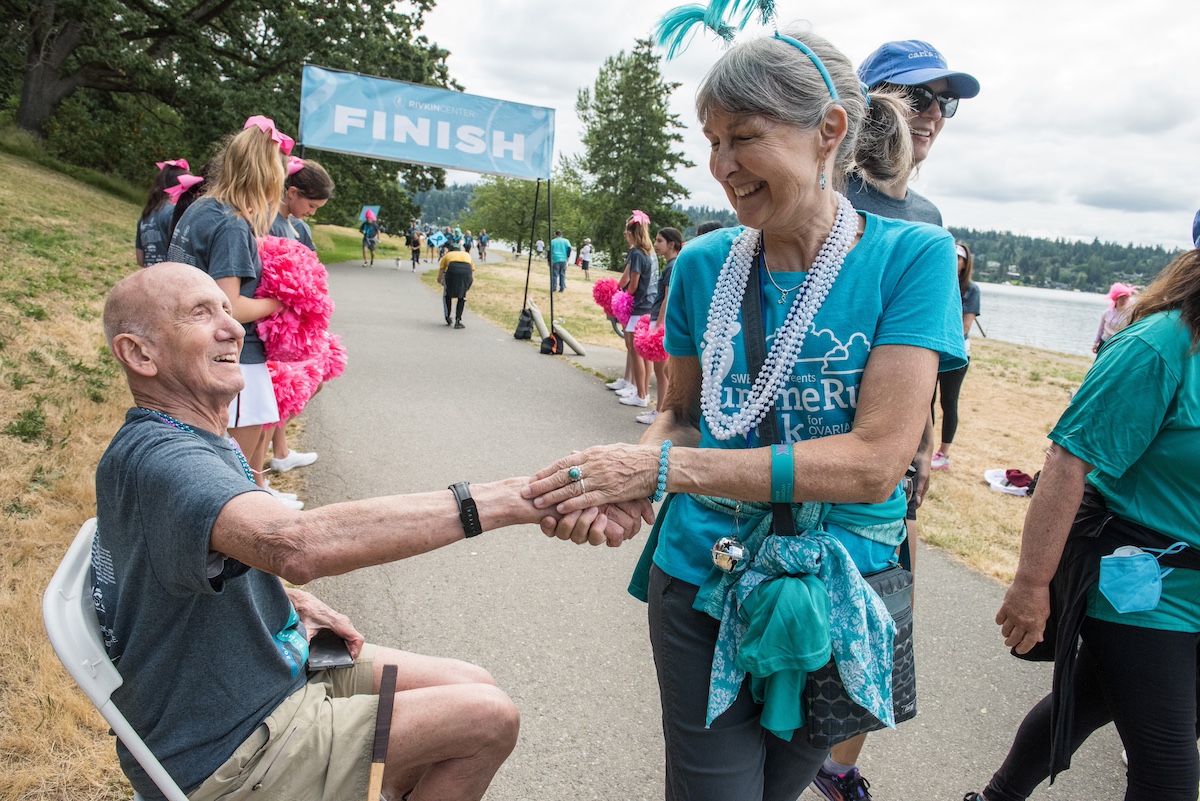An important victory for the ovarian cancer community came in 2006 when Congress passed Johanna’s Law.
What is Johanna’s Law?

Also known as The Gynecologic Cancer Education and Awareness Act, the legislation supports a variety of programs, research projects and activities at Centers for Disease Control and Prevention (CDC) aimed at educating healthcare providers and the general population alike. The law is named for Johanna Gordon Silver, a schoolteacher who was diagnosed with late-stage ovarian cancer and died from the disease in 2000.
As part of Johanna’s Law, CDC established a national initiative to promote education and awareness of gynecologic cancers, leading to the Inside Knowledge: Get the Facts About Gynecologic Cancer campaign. Also referred to as the IK campaign, this initiative addresses common misbeliefs around gynecologic cancers screening protocols; highlights critical differences between gynecologic cancers; and helps clarify overlapping risk factors and symptoms.
Johanna’s Law also supports education of primary health care providers under the IK Campaign. As part of this initiative, CDC offers a free gynecologic cancer curriculum training module to health care professionals and continuing education (CE/CNE) credit upon completion of the course.
Gynecologic cancer awareness and education saves lives—but there is more to be done.
Education is a crucial tool in the fight against ovarian and other gynecologic cancers. According to the American Cancer Society, there will be an estimated 113,520 new cases of gynecologic cancers nationwide in 2020. And ovarian is the deadliest gynecologic cancer, with roughly two-thirds of ovarian cancer cases diagnosed at an advanced stage when the five-year survival rate is less than 50 percent.
Congress has consistently funded Johanna’s Law through annual appropriations since 2006—and the effectiveness of IK campaign materials in raising awareness about ovarian and other gynecologic cancers has been proven time and again. Johanna’s Law has touched millions of lives and remains unmatched in size, scale and scope. However, the persistent racial and geographic disparities across gynecologic cancers suggest that additional efforts are needed to target vulnerable and hard-to-reach populations.
According to a 2019 study: “CDC Sessions [using IK materials] were effective in increasing awareness of gynecologic cancer among underserved women…. Additional resources containing specific interventions appropriate to particular underserved populations may be beneficial in increasing healthy behaviors, leading to a reduction in gynecologic cancer disparities.”
Federal funding for gynecologic cancer programs hangs in the balance, with H.R. 4560.
On September 27, 2019, Rep. Rosa DeLauro (D-CT)—leader of the Congressional Ovarian Cancer Caucus and an ovarian cancer survivor herself—introduced H.R. 4560 in the House of Representatives. This bill seeks to reauthorize and enhance Johanna’s Law by increasing funding for another three years at $15 million (a total of $45 million for the period of fiscal years 2020 through 2022). This amount represents a $6 million increase over the fiscal year 2020 funding level appropriated by Congress. This additional funding supports new provisions under H.R. 4560, including initiatives to raise awareness among specific higher-risk populations of women. If H.R. 4560 is passed, it will enable CDC to meet evolving public health needs when it comes to gynecologic cancers
Johanna’s Law must be re-authorized. You can help.
OCRA Advocate Leaders continue to work for support of this legislation. They spoke to their representatives on Capitol Hill about cosponsoring H.R. 4560 during Spring Advocacy Day on March 10, 2020.
Want to help build support for H.R. 4560? Click here.


